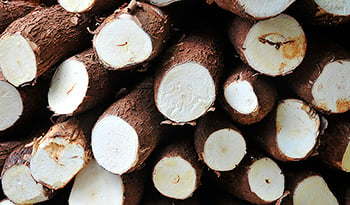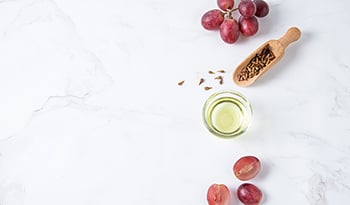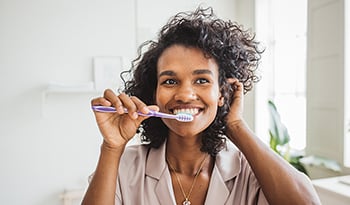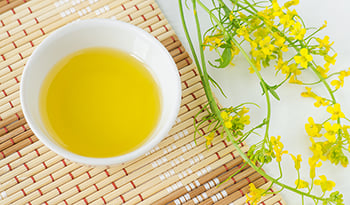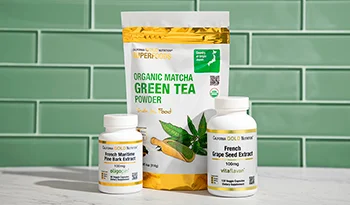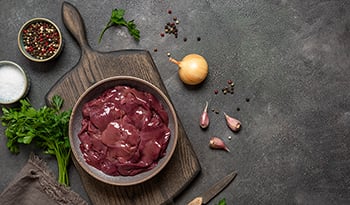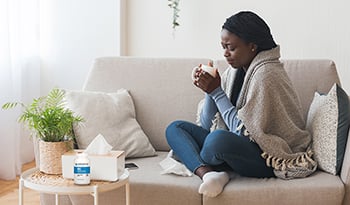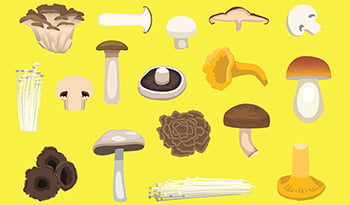3 Health Goals for 2024: Better Sleep, Less Stress, More Energy
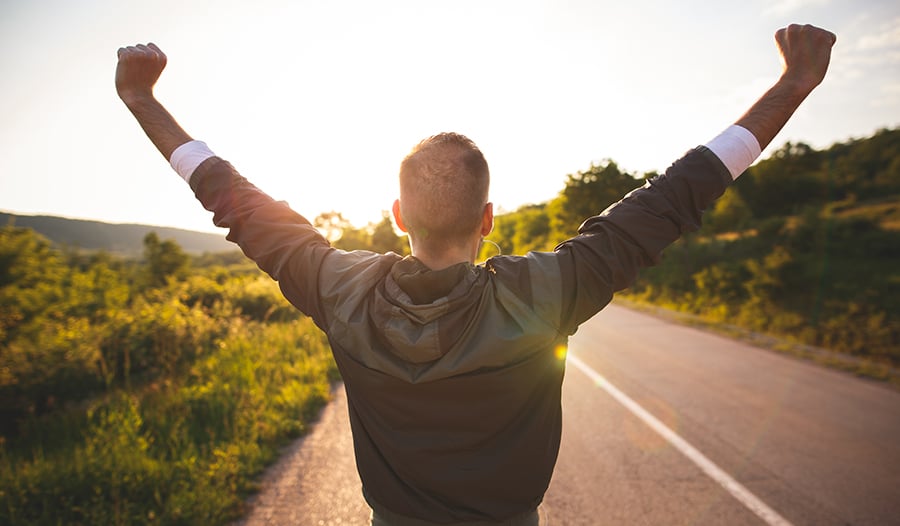
With the new year looming, you may desire to make changes that could positively impact your health. Some of the health goals for 2024 that may benefit overall health and wellness include better sleep, less stress, and getting more energy.
Health Goal 1: Get Quality Sleep
Sleep is an essential part of overall health. Current recommendations suggest that adults aged 18 to 65 should get 7 or more hours of sleep. Many individuals don’t get the recommended hours of sleep nightly, which may negatively affect overall health.
Studies indicate that insufficient sleep is linked to many health issues like high blood pressure, certain cancers, and an increased risk of dementia. Lack of sleep is also linked to an increased risk of obesity. Research suggests that insufficient sleep may lead to greater secretion of hormones that increase the appetite, leading to weight gain.
Getting enough sleep may be one of the most important health goals 2024.
Tips for Better Sleep
Here are some tips that may help you get a better night’s sleep.
Proper Sleep Hygiene
Sleep hygiene is a set of healthy habits that help to promote a good night’s rest.
Some aspects of sleep hygiene include having a dark, cool room, going to bed at the same time every night, and having a bedtime routine like taking a shower or soothing bath before bed. Adding lavender to the bath or even sleeping with a dab of essential oil on the pillow may help improve sleep.
One double-blind, randomized controlled study focused on the effects of lavender oil on sleep. The study found that the participants who used a patch with lavender oil and sleep hygiene reported better sleep quality and feeling refreshed upon waking.
Avoid Screens Before Bed
Avoiding blue light emitted through screens before bed may help improve sleep quality. Multiple studies have found that blue light exposure was associated with decreased sleep quality, less tiredness, and shorter sleeping hours.
Foods for Better Sleep
Adding sleep-promoting foods to a solid sleep hygiene strategy may help to improve sleep quality. For example, foods like pistachios, oats, and black rice are naturally high in melatonin, a hormone that promotes sleep and regulates the body’s circadian rhythm. Eating a handful of pistachios or a 1/2 cup of oatmeal 2 to 4 hours before bedtime may help improve sleep. Other foods high in melatonin include cow’s milk, tomatoes, and lentils.
Supplements for Better Sleep
While a strong sleep hygiene strategy and a healthy diet may be foundational to proper sleep, adding supplements may bring incredible benefits.
Melatonin
For example, some individuals may benefit from taking melatonin directly to help promote better sleep. Multiple studies suggest that melatonin may improve sleep quality and length.
While melatonin may be beneficial for promoting sleep, some individuals may experience a headache after taking a higher dose of melatonin and prefer other sleep-supporting agents.
Tart Cherry
While tart cherry may not be as widely known as melatonin, studies suggest that it may be helpful to support better sleep.
One double-blind, randomized, placebo-controlled study aimed to measure the effects of tart cherry juice on sleep. The study involved 20 participants and found that tart cherry juice was associated with increased time in bed, total time asleep, and better sleep overall.
Saffron
Saffron is a spice that originates from the Crocus sativa flower. Research indicates that saffron may promote better sleep.
One double-blind, randomized, placebo-controlled study focused on the effects of saffron on mild to moderate sleep disorders. The study involved 66 participants. Over 6 weeks, saffron supplementation improved the sleep quality, decreased the time taken to fall asleep, and increased the hours slept.
Health Goal 2: Decrease Stress Levels
Stress is often an inevitable part of daily life. From taking on a new workout to finishing a project on a tight deadline, stress plays a role in how the body responds to its environment. While short-term stress may help to get a project done or win a sprinting race, unresolved stress may wreak havoc on the body.
Studies link higher amounts of stress to an increased risk of mortality. Long-term stress has been linked to inflammation, cardiovascular disease, and poor mental health. Therefore, one of the main goals for better health in 2024 could be to have less stress. Less stress in everyday life is not only associated with a decrease in mortality, it also may come with several other health benefits like better mental health and lower blood pressure.
Tips for Less Stress
Promoting less stress may include practicing gratitude and mindfulness and spending more time in nature.
Practicing Gratitude
One way that may help to reduce stress is to practice gratitude. Studies suggest that practicing gratitude may help reduce stress and lead to a more positive outlook.
Two long-term studies followed participants who were experiencing stressful life events like the first semester of college. Both studies found that practicing gratitude was associated with less stress and depression.
Mastering Mindfulness
Mindfulness is a practice that involves focusing on thoughts as they arise, gently acknowledging these thoughts, and being fully present. The practice of mindfulness has gained popularity due to its potential health benefits.
Studies suggest that practicing mindfulness may help to reduce stress. One meta-analysis that reviews data from 20 individual studies found that practicing mindfulness may help reduce everyday stress and stress from bigger life events.
Spending More Time in Nature
Spending more time in nature may be beneficial for stress reduction. For example, one study involving 153 workers at a large company surveyed them for their responses to stress and their use of the company’s green space.
The study found that increased contact with outdoor natural surroundings significantly decreased feelings of anxiety. Studies suggest that some supplements may also help reduce stress.
Supplements for Less Stress
Here are a few supplements that may help you reduce your stress levels.
Ashwagandha
Ashwagandha is widely considered to be an adaptogen. Adaptogens, usually herbs, help the body manage stress better. They may also help bring the body back into balance.
Research suggests that ashwagandha may help to reduce stress. One double-blind, placebo-controlled randomized study found that ashwagandha was associated with a reduction in the perception of anxiety and lower morning cortisol levels.
Cortisol is a hormone released in response to stress.
L-Theanine
L-theanine is an amino acid found in green tea. Research suggests that L-theanine may benefit those experiencing mental stress. One systematic review looked at data from 9 different randomized controlled human studies focused on the effects of L-theanine on stress and anxiety.
The study found that L-theanine may help to reduce the feelings of stress and anxiety in people who are undergoing stressful life experiences.
Health Goal 3: Have More Energy
Having more energy to get everything done is a great goal to have in 2024. More energy may help increase productivity and improve quality of life.
Having more energy may require exercising more and drinking more water.
Exercising May Help Increase Energy
Exercise may be one of the most important additions to a health routine that may increase energy.
Studies link physical activity to less fatigue and more energy in adults. One study examined data focused on exercise and energy levels in adults from 12 different studies from 1945 to 2005. The study found that adults who reported regular exercise had higher energy levels than those with more sedentary lifestyles.
Increasing physical activity can be as simple as taking a short walk after a meal or taking the stairs instead of the elevator.
Drinking More Water May Help Increase Energy
Water is one of the most abundant compounds in the body. The body needs to function properly as it helps protect, lubricate, and eliminate waste.
Studies show that drinking more water may help to increase energy.
One study found that those who increased water consumption had a decrease in sleepiness and an increase in energy.
Supplements for Energy
While exercising more and drinking more water may help to increase energy levels, some supplements may help promote more energy.
Coenzyme Q10
Coenzyme Q10, better known as coQ10, is an antioxidant the body makes. The body makes less coQ10 with age, which may contribute to lower energy levels.
One meta-analysis looked at data from 14 studies and found that coQ10 supplementation was associated with a significant increase in energy.
Siberian Ginseng
Siberian ginseng, also known as Eleutherococcus or eleuthero, is an adaptogen that may help increase energy. One randomized controlled trial found that the severity of fatigue and the time participants suffered from fatigue was greatly reduced with Siberian ginseng supplementation.
Takeaway
Having better health in 2024 may start with three major health goals: better sleep, less stress, and more energy. A comprehensive approach involving diet, lifestyle changes, and supplementation may help you complete these goals in 2024 and beyond.
References:
- Alex M. Wood, John Maltby, Raphael Gillett, P. Alex Linley, Stephen Joseph, The role of gratitude in the development of social support, stress, and depression: Two longitudinal studies, Journal of Research in Personality, Volume 42, Issue 4, 2008, Pages 854-871, ISSN 0092-6566, https://doi.org/10.1016/j.jrp.2007.11.003. (https://www.sciencedirect.com/science/article/pii/S0092656607001286)
- Association of sleep duration in middle and old age with incidence of dementia. Sabia S, Fayosse A, Dumurgier J, van Hees VT, Paquet C, Sommerlad A, Kivimäki M, Dugravot A, Singh-Manoux A. Nat Commun. 2021 Apr 20;12(1):2289. doi: 10.1038/s41467-021-22354-2. PMID: 33879784.
- Chaput JP, McHill AW, Cox RC, et al. The role of insufficient sleep and circadian misalignment in obesity. Nat Rev Endocrinol. 2023;19(2):82-97. doi:10.1038/s41574-022-00747-7
- Chattu VK, Manzar MD, Kumary S, Burman D, Spence DW, Pandi-Perumal SR. The Global Problem of Insufficient Sleep and Its Serious Public Health Implications. Healthcare (Basel). 2018;7(1):1. Published 2018 Dec 20. doi:10.3390/healthcare7010001
- Howatson G, Bell PG, Tallent J, Middleton B, McHugh MP, Ellis J. Effect of tart cherry juice (Prunus cerasus) on melatonin levels and enhanced sleep quality. Eur J Nutr. 2012;51(8):909-916. doi:10.1007/s00394-011-0263-7
- Lillehei AS, Halcón LL, Savik K, Reis R. Effect of Inhaled Lavender and Sleep Hygiene on Self-Reported Sleep Issues: A Randomized Controlled Trial. J Altern Complement Med. 2015;21(7):430-438. doi:10.1089/acm.2014.0327
- Lopresti AL, Smith SJ, Malvi H, Kodgule R. An investigation into the stress-relieving and pharmacological actions of an ashwagandha (Withania somnifera) extract: A randomized, double-blind, placebo-controlled study. Medicine (Baltimore). 2019;98(37):e17186. doi:10.1097/MD.0000000000017186
- Lopresti AL, Smith SJ, Malvi H, Kodgule R. An investigation into the stress-relieving and pharmacological actions of an ashwagandha (Withania somnifera) extract: A randomized, double-blind, placebo-controlled study. Medicine (Baltimore). 2019;98(37):e17186. doi:10.1097/MD.0000000000017186
- Meng X, Li Y, Li S, et al. Dietary Sources and Bioactivities of Melatonin. Nutrients. 2017;9(4):367. Published 2017 Apr 7. doi:10.3390/nu9040367
- Okely JA, Weiss A, Gale CR. The interaction between stress and positive affect in predicting mortality. J Psychosom Res. 2017;100:53-60. doi:10.1016/j.jpsychores.2017.07.005
- Pachikian BD, Copine S, Suchareau M, Deldicque L. Effects of Saffron Extract on Sleep Quality: A Randomized Double-Blind Controlled Clinical Trial. Nutrients. 2021;13(5):1473. Published 2021 Apr 27. doi:10.3390/nu13051473
- Paul Grossman, Ludger Niemann, Stefan Schmidt, Harald Walach, Mindfulness-based stress reduction and health benefits: A meta-analysis, Journal of Psychosomatic Research, Volume 57, Issue 1, 2004, Pages 35-43, ISSN 0022-3999, https://doi.org/10.1016/S0022-3999(03)00573-7. (https://www.sciencedirect.com/science/article/pii/S0022399903005737)
- Pross N, Demazières A, Girard N, et al. Effects of changes in water intake on mood of high and low drinkers. PLoS One. 2014;9(4):e94754. Published 2014 Apr 11. doi:10.1371/journal.pone.0094754
- Puetz TW. Physical activity and feelings of energy and fatigue: epidemiological evidence. Sports Med. 2006;36(9):767-780. doi:10.2165/00007256-200636090-00004
- Sara P. Perrins, Usha Varanasi, Edmund Seto, Gregory N. Bratman, Nature at work: The effects of day-to-day nature contact on workers’ stress and psychological well-being, Urban Forestry & Urban Greening, Volume 66, 2021,127404, ISSN 1618-8667, https://doi.org/10.1016/j.ufug.2021.127404. (https://www.sciencedirect.com/science/article/pii/S1618866721004313)
- Silvani MI, Werder R, Perret C. The influence of blue light on sleep, performance and wellbeing in young adults: A systematic review. Front Physiol. 2022;13:943108. Published 2022 Aug 16. doi:10.3389/fphys.2022.943108
- Zisapel N. New perspectives on the role of melatonin in human sleep, circadian rhythms and their regulation. Br J Pharmacol. 2018;175(16):3190-3199. doi:10.1111/bph.14116
DISCLAIMER:This Wellness Hub does not intend to provide diagnosis...














































































 Table of Contents
Table of Contents



